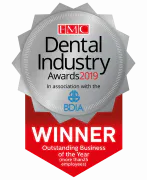Gemini graduated from Bart’s and The Royal London, School of Dentistry, in 2005. She obtained membership of the Joint Dental Faculties, The Royal College of Surgeons (MJDF RCS Eng) in 2010 and completed post graduate training in Oral and Maxillofacial Surgery at Bedford Hospital in 2012 where she is currently a Speciality Doctor in Oral Surgery one day a week.
Gemini has also completed a 3 year implant programme at the internationally acclaimed Eastman Dental Institute, University College London. With over 10 years in general practice, she is highly experienced in all aspects of modern family dentistry including cosmetic dentistry, teeth whitening, teeth straightening, dental implants and complex wisdom teeth removal.
Gemini is an extremely approachable dentist who welcomes all nervous patients and patients of all ages. She is a well-rounded dentist who enjoys the opportunity to provide the best possible standards in oral health. Gemini is continuously committed to on-going professional developments to enhance her knowledge and skills.
Gemini’s hobbies include keeping fit, travelling and reading. Qualifications- BDS (Lond) – Bart’s and London School of Dentistry 2005, MJDF RCS Eng – 2010. Gemini's areas of special clinical interest- Gemini has a keen interest in aesthetic dentistry, oral surgery and implants.






